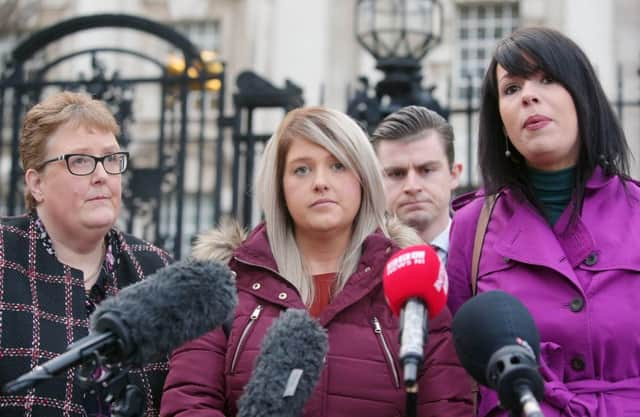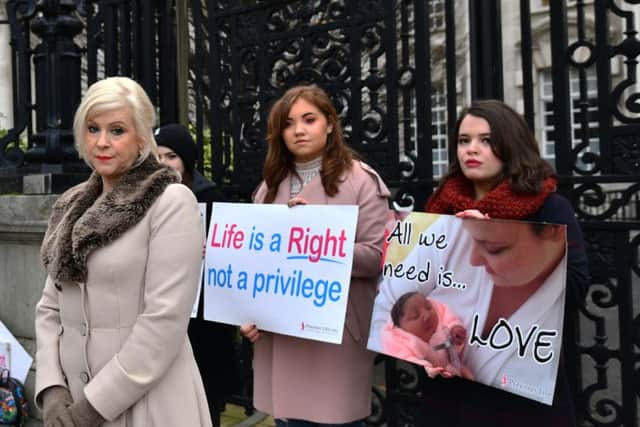Legal challenge over NI’s abortion laws expected to last three days


Sarah Ewart’s challenge comes after the Supreme Court ruled last year that the restrictive abortion laws in the region are in breach of human-rights legislation.
Speaking to the media, Ms Ewart said she cannot believe she is back at court again.
Advertisement
Hide AdAdvertisement
Hide AdShe said she found it nerve-wracking to be back at court and to again share her experience of having to travel to England for an abortion after discovering her pregnancy had fatal abnormalities.


Ms Ewart was accompanied by her mother Jane Christie and Grainne Teggart from Amnesty International.
Ms Teggart commented that it is a “damning indictment” of the UK Government that women like Ms Ewart are having to go through the courts system to secure a change in the law.
The hearing started at 10.30am.
Ms Ewart’s legal challenge is being heard by Mrs Justice Siobhan Keegan in a hearing which is expected to last for three days.
Advertisement
Hide AdAdvertisement
Hide AdThere are two respondents in the case: Northern Ireland’s Department of Justice and Department of Health.
Northern Ireland’s Attorney General John Larkin is representing himself in the proceedings.
Barrister Adam Straw, acting for Ms Ewart, is setting out his client’s case.
He said that the law in Northern Ireland which prohibits abortion in fatal foetal abnormality cases is incompatible with human rights legislation.
Advertisement
Hide AdAdvertisement
Hide AdReferring to last year’s Supreme Court judgment that Northern Ireland’s abortion laws were a breach of human rights legislation, Mr Straw said: “I respectfully invite this court to follow the lead of the Supreme Court.”
Mr Straw outlined that there is “compelling evidence of serious impact” on women who carry a pregnancy with fatal foetal abnormalities full term.
In his skeleton argument, he referred to evidence given to the Supreme Court by Professor James Dornan, director of foetal medicine at the Royal Jubilee Maternity Service at the Royal Maternity Hospital in Belfast that there is a risk of sepsis to the mother carrying a foetus which may not survive.
Prof Dornan also said there are “significant risks” to the mental health of the mother continuing a pregnancy knowing that the foetus could die at any moment.
Advertisement
Hide AdAdvertisement
Hide AdMr Straw also referred to three cases mentioned in the Supreme Court judgment, including Ms Ewart, who in 2013 travelled to London for a termination after being refused one in Northern Ireland despite being diagnosed with a fatal foetal abnormality due to the region’s strict abortion laws.
The judgment quotes Ms Ewart’s experience, which included facing abuse from pro-life protesters outside the Family Planning Association in Belfast before travelling to London where she felt the process lacked dignity and resembled a “conveyor belt”.
She was said to have found the experience devastating.
Mr Straw also contended that the respondents - NI’s Department of Justice and Department of Health - and the Executive Committee “failed to amend the 1945 act” - the Criminal Justice Act (Northern Ireland) which makes carrying out an abortion an illegal act.
The court heard that the respondents have submitted new evidence that they attempted to introduce new abortion legislation, but that this was not brought forward by the Executive Committee.
Mr Straw has asked that the Executive Committee be added to the list of respondents along with the departments.
Mrs Justice Keegan said this will be considered following the lunch break.